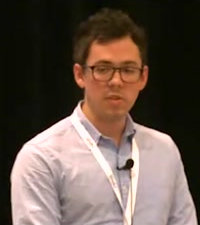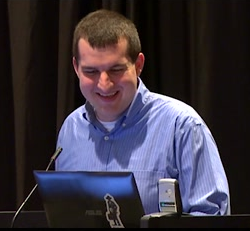CppCon 2014 Parallelizing the Standard Algorithms Library--Jared Hoberock
 Have you registered for CppCon 2015 in September? Don’t delay – Early Bird registration is open now.
Have you registered for CppCon 2015 in September? Don’t delay – Early Bird registration is open now.
While we wait for this year’s event, we’re featuring videos of some of the 100+ talks from CppCon 2014 for you to enjoy. Here is today’s feature:
Parallelizing the Standard Algorithms Library
by Jared Hoberock
Summary of the talk:
Until recently, C++ programmers building parallel programs found little support for parallelism in the standard toolbox. That's changing with the technical specification on Extensions for Parallelism in C++. This talk will explore how programmers can build portable parallel programs from high-level parallel algorithms which can execute on CPU threads, vector units, and even GPUs.

 Have you registered for CppCon 2015 in September? Don’t delay –
Have you registered for CppCon 2015 in September? Don’t delay –  Have you registered for CppCon 2015 in September? Don’t delay –
Have you registered for CppCon 2015 in September? Don’t delay –  Have you registered for CppCon 2015 in September? Don’t delay –
Have you registered for CppCon 2015 in September? Don’t delay –  A nice "in a nutshell" about why you should run, not walk, to take advantage of move semantics:
A nice "in a nutshell" about why you should run, not walk, to take advantage of move semantics: JetBrains is hosting a free webinar (registration required):
JetBrains is hosting a free webinar (registration required):